
Cyprus
Directory


A.I. Kitsios LLC
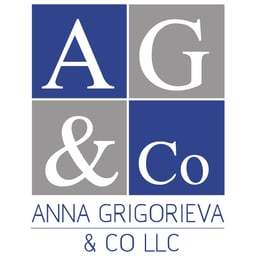
AG ADVOCATES (Anna Grigorieva & Co LLC)

AGPLAW | A.G. Paphitis & Co. LLC

Akis Papakyriacou LLC

Alexandros Economou LLC

AMG Mylonas & Associates, LLC

Andreas Coucounis & Co LLC

Andreas Demetriades & Co LLC

ANDREAS KONNARIS LLC

Antis Triantafyllides & Sons LLC

Antoniou McCollum & Co. LLC

Athos Demetriou Associates LLC

CHAMBERSFIELD ECONOMIDES KRANOS

Christos Patsalides L.L.C.

Chrysostomides Advocates & Legal Consultants

Chrysses Demetriades & Co Law Office

Cipcic-Bragadin Mesic & Associates

Clerides, Anastassiou, Neophytou LLC

COSTAS TSIRIDES & CO LLC

E & G Economides LLC

ECONOMOU & CO LLC

Elias Neocleous & Co LLC

EMILY A. LEMONIATI LLC

Frangos Law

G. Leontiou LLC

G.C.Hadjikyprianou & Associates LLC

GEORGE K. KONSTANTINOU LAW FIRM

George Y Yiangou LLC

George Z. Georgiou & Associates LLC

Georgiades & Pelides LLC

GIORGOS LANDAS LLC

Hadjianastassiou, Ioannides LLC

Harris Kyriakides

Haviaras & Philippou L.L.C.

Ioannides Demetriou LLC

IP Cyprus - Ioannides, Cleanthous & Co LLC

K. Argyridou & Associates LLC

Karamanolis & Karamanolis LLC

KINANIS LLC
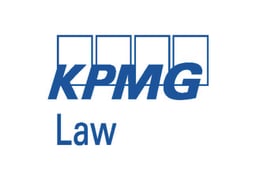
KPMG Law Cyprus

LLPO Law Firm
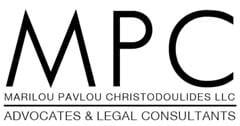
Marilou Pavlou Christodoulides LLC

Michael Damianos & Co LLC

Michael Kyprianou & Co. LLC

Montanios & Montanios LLC

Mouaimis & Mouaimis LLC

N. Pirilides & Associates LLC

P. N. Kourtellos & Associates LLC

Patrikios Legal

Pittas + Koullouros LLC
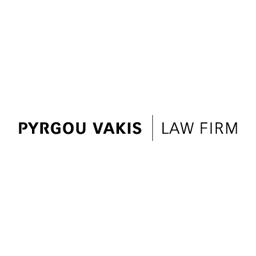
PYRGOU VAKIS LAW FIRM

Scordis, Papapetrou & Co LLC

Sizinos & Co LLC
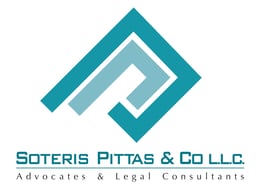
Soteris Pittas & Co L.L.C

STELIOS AMERICANOS & CO LLC
Firms in the Spotlight

STELIOS AMERICANOS & CO LLC
Stelios Americanos & Co LLC is a full-service commercial law firm with its headquarters in Nicosia, specialising in corporate and commercial law, banking finance, litigation, tax and financial advisor

Montanios & Montanios LLC
Montanios & Montanios (“M&M”) is one of the oldest, continually operating, law firms in Cyprus with an international practice.

K. Argyridou & Associates LLC
We are a boutique firm providing high quality services in the areas of banking and financial services.

George Y Yiangou LLC
George Y. Yiangou LLC is one of the biggest law offices in Cyprus with almost 40 years of professional expertise, providing a broad range of legal services</

AGPLAW | A.G. Paphitis & Co. LLC
With over 19 years of excellence, AGPLAW is a premier full-service law firm headquartered in Cyprus, with strategic offices in London and Dubai.
Recognized for its unwavering commitment to innovat

P. N. Kourtellos & Associates LLC
P. N. Kourtellos & Associates LLC is an independent and dynamic law firm in Limassol, founded by Dr Pavlos Neofytou Kourtellos and Ioanna Demetriou in 2011.

Scordis, Papapetrou & Co LLC
SCORDIS, PAPAPETROU & Co LLC is a leading law firm in Cyprus whose roots date from 1922. Today it has more than 30 specialized lawyers and is renowned for its strong international corporate and disput

AMG Mylonas & Associates, LLC
AMG Mylonas & Associates, LLC is an independent and dynamic entrepreneurial boutique law firm based in Limassol with associates in Greece and a professional network across Europe, Russia, Ukraine, Nor

Karamanolis & Karamanolis LLC
Karamanolis & Karamanolis LLC is a boutique firm specialized in Commercial and Corporate Litigation and Arbitration.

A.G Erotocritou LLC
A.G. Erotocritou LLC is a dynamic law firm advising on non-contentious, advisory and litigation matters.
Interviews
View
Andreas Mylonas, Managing Director and Advocate
AMG Mylonas & Associates, LLC
Elena A. Konnari, Managing Director
ANDREAS KONNARIS LLC

Kypros Ioannides, Partner
Hadjianastassiou, Ioannides LLC
Dr. Pavlos Neofytou Kourtellos, Managing Partner
P. N. Kourtellos & Associates LLC
Dr. Pavlos Neofytou Kourtellos, Advocate – Managing Partner
P. N. Kourtellos & Associates LLC

Maria Papaefstathiou Damianos, Partner
Michael Damianos & Co LLC

Elias Neocleous, Managing Partner
Elias Neocleous & Co LLC

Ioanna Solomou, Partner
Michael Kyprianou & Co. LLC

Angelos G. Paphitis, Managing Partner
AGPLAW | A.G. Paphitis & Co. LLC

Michael Kyriakides, Partner
Harris Kyriakides
News & Developments
ViewPress Releases
Elias Neocleous & Co LLC Delivers Key Insights at the Legal500 GC Summit 2026
Continuing its active involvement in this prestigious international summit, Elias Neocleous & Co LLC sponsored the Legal500 GC Summit 2026 in Cyprus, marking eight consecutive years of support.
The Legal500 GC Summit is widely recognised as a key platform for dialogue between in-house counsel and leading law firms, fostering collaboration, knowledge exchange and meaningful discussion of emerging legal and regulatory developments.
Held at the Landmark Nicosia Hotel, the conference welcomed approximately 100 leading lawyers and in-house counsel from high-calibre companies across Cyprus.
The event provided an opportunity for participants to interact, network, and discuss current legal and regulatory developments, including the recent incorporation of EU Regulation 2019/452 into Cyprus law through The Law on the Establishment of a Framework for the Control of Foreign Direct Investments (FDI) of 2025, which is scheduled to enter into force on 2 April 2026.
This timely topic was the focus of an engaging panel delivered by Elias Neocleous & Co LLC.
The panel explored the concept of investing with foresight under the new FDI screening mechanism and featured the following speakers:
Mrs. Andrea Kallis, Partner at Elias Neocleous & Co LLC;
Mr. Alexey Drobyshev, Deputy Chief Legal Officer at Sumsub;
Mrs. Rafaella Charalampous, Senior Legal Counsel at Pepperstone EU Limited;
Mr. Emilios Charalambous, Associate Lawyer at Elias Neocleous & Co LLC.
Following the opening remarks by Mrs. Andrea Kallis, the key aspects of the new law were presented by Mr. Emilios Charalambous, who outlined its background, scope, process, and potential impact. His introduction set the foundation for a high-level and informed legal discussion.
In turn, Mrs. Rafaella Charalampous, drawing on her experience in corporate structuring, shared her views on whether the new provisions are likely to deter or attract foreign capital. The discussion addressed the possibility of fund rerouting through alternative legal structures or jurisdictions with less stringent screening frameworks.
In the same vein, Mr. Alexey Drobyshev provided his perspective on how the new law may be received by affected foreign investors and offered a broader assessment of whether such regulations contribute to making the European Union a safer and more attractive investment destination.
The panel concluded with Mr. Emilios Charalambous offering practical guidance to the lawyers and General Counsels present on how best to support their clients under the new framework.
Before closing the session, Mrs. Andrea Kallis presented four key questions that the firm had raised with the Ministry of Finance, as the supervising authority of the FDI law, together with the responses received. This provided the audience with further clarity on the regulator’s approach and intentions going forward.
Overall, the panel delivered valuable insights into the operation, implications, and evolving perceptions of Foreign Direct Investment (FDI) in Cyprus, reaffirming Elias Neocleous & Co LLC’s commitment to contributing meaningfully to the legal community and to the development of an effective and sustainable services industry.
For more information of inquiries, please contact our Partner Mrs. Andrea Kallis Parparinou at [email protected], or our Associate Mr. Emilios Charalambous at [email protected]
Elias Neocleous & Co LLC - February 18 2026
Real estate and construction
Court of Appeal Ruling on Unlawful Occupation Following Lease Termination
Pursuant to Article 281(1)(a) of the Criminal Code, Cap. 154 and based on a recent case law from the Cyprus Court of Appeal it has been confirmed that tenants who remain in possession of immovable property after lawful termination of a lease, may be held criminally liable for unlawful occupation.
This development strengthens the legal position of property owners and clarifies the interaction between civil and criminal remedies in tenancy disputes.
While a tenant initially enters into possession lawfully under a lease, that consent ceases once the lease is validly terminated and a clear demand for vacant possession is made. The offence carries penalties including imprisonment, a fine or both where applicable.
Historically, disputes over possession after the end of a lease were treated predominantly as civil matters governed by contract and property law. However, this approach has now expanded in scope following a recent appellate decision.
In accordance with the landlords, the ruling provides an additional enforcement mechanism alongside civil proceedings for recovery of possession and damages through criminal complaints against the tenants who remain in possession after termination of the lease. The landlords should avoid changing locks or forcibly removing tenants prior court instructions, as such actions may expose the landlord liable and are not sanctioned by this new criminal route. It is essential that termination notices are drafted clearly, served properly, and specify a deadline for delivery of possession. This strengthens the evidence of withdrawal of consent when initiating any criminal complaint. It should be noted that criminal action for unlawful possession does not substitute for a civil court order for possession. Landlords should proceed if they wish with civil claims for possession and damages, even if a criminal complaint is filed simultaneously.
This judicial development marks a significant shift in the enforcement of property rights in Cyprus and how post-termination occupation is treated under Cyprus law. Both landlords and tenants should seek timely legal advice to ensure their rights are protected and to avoid unintended criminal exposure.
For more information please contact our senior advocate Cathy Georgiou.
...
Article by Kathy Georgiou – Senior Advocate – E&G Economides LLC
[email protected]
Cathy holds a Bachelor of Laws from the University of Nicosia in 2012 and she was admitted to the Cyprus Bar Association in 2013.
During her career, she excelled in a wide spectrum of areas. At the same time, Cathy was trained and then specialized as a litigation and dispute resolution lawyer where she acquired significant experience at areas such as Family, Tort, Contracts, Immigration, Civil and Criminal Law.
Cathy also possesses excellent contract drafting skills and is up-to-date with relevant legislation.
In her current position, Cathy is focusing on projects and transactions relating to real estate law, the drafting of wills and probates, immigration/employment issues and other relevant matters related to litigation and dispute resolution.
E & G Economides LLC - February 10 2026
Commercial, Corporate and M&A
Foreign (non-EU) Direct Investment Screening in Cyprus
Cyprus has enacted its first dedicated legislation governing the review of foreign direct investments that may affect matters of security or public order.
The Law on the Establishment of a Framework for Screening Foreign Direct Investments of 2025 (Law 194(I)/2025) will apply as from 2 April 2026.
The new law gives effect to Regulation (EU) 2019/452, introducing a formal review process for certain investments by non-EU investors into Cyprus businesses.
What is a Foreign Direct Investment
The Law adopts a wide understanding of foreign direct investment. It covers any form of investment by a foreign investor that is intended to create or preserve a stable and direct relationship with a Cyprus undertaking, where the investor is able to participate effectively in the management or control of that undertaking.
Foreign investors include both individuals and legal entities established outside the European Union, the European Economic Area and Switzerland.
When Prior Notification Is Required
The competent authority must be notified before an investment is completed if the following conditions apply cumulatively:
the value of the investment reaches EUR 2 million or more, either as a standalone transaction or together with related transactions concluded between the same parties within a twelve month period;
the target undertaking operates in a sector considered sensitive under the Law; and
the investment leads to the acquisition of 25% or more of the share capital or voting rights, whether directly or indirectly.
Role of the Ministry of Finance
Responsibility for the assessment of FDIs rests with the Ministry of Finance, which acts as the competent authority.
Where notification is mandatory, as per the above conditions, the transaction cannot be completed unless approval is granted. The Ministry also has the power to examine investments that fall outside the mandatory thresholds if they are considered capable of affecting security or public order. In such cases, the Ministry may initiate a review within 15 months of completion.
Where a notifiable investment has been completed without prior notification, the review window extends to five years.
Review Procedure and Timeframes
Once a notification is submitted, the Ministry has 20 business days to decide whether a full review will take place.
If no review is initiated, the investor is informed shortly thereafter. If the investment proceeds to screening, the Ministry must reach a final decision within 65 business days, determining whether the investment raises concerns for the Republic of Cyprus.
Sanctions for Non-Compliance
Failure to submit notification may result in administrative fines, alongside other corrective measures available under the Law. In serious cases, the Ministry may seek court order to prevent or pause an unlawful transaction.
Any decision taken by the Ministry may be challenged before the Administrative Court.
Foreign investments in Cyprus will now go through a statutory approval process based on investor origin, transaction value and sectoral activity. This introduces an additional regulatory step that did not previously exist and which may affect both the timing and execution of certain transactions. In practice, investors and sellers will need to assess at an early stage whether a proposed transaction falls within the scope of the Law, as completion without the required clearance may expose the parties to sanctions and post-completion intervention by the authorities.
…
Author details:
Michalis Nikolaou – Advocate
[email protected]
Michalis holds a Bachelor of Laws (LL.B) from the University of Sunderland in the UK, and a Master’s degree (LL.M) in Commercial and Company Law from Erasmus University in the Netherlands.
He successfully passed the Cyprus Bar exams in 2022 and upon the successful completion of his legal training in a reputable law firm in Limassol, where he was involved in various litigation and corporate matters, he was admitted to the Cyprus Bar Association in 2022.
In his current position in our firm, Michalis focuses on corporate and commercial matters as well as drafting and reviewing corporate agreements of various sorts and legal transactions. In addition, Michalis provides assistance on cases and matters relating to real-estate transactions.
E & G Economides LLC - February 10 2026
Intellectual property
SME Fund 2026: Protect your IP with EU funding
Cost barriers for trademark applications often hinder small businesses from securing intellectual property rights.
Recognising this challenge, the European Union Intellectual Property Office (EUIPO) has introduced an ambitious €60 million fund designed to assist Small and Medium-sized Enterprises (SMEs) with their IP protection efforts.
This new SME Fund 2026 aims to significantly lower the financial hurdles associated with registering trademarks and obtaining other IP protections. Building on the success of previous initiatives, the program provides extensive support for a wide range of IP activities. It not only covers trademarks but also extends to patents, designs, and plant variety rights.
The primary goal of the fund is to promote equal access to intellectual property protections throughout the European Union, empowering smaller businesses to defend their innovations and brands. Consequently, SMEs can now overcome previous financial barriers that limited their ability to secure essential IP rights in competitive markets.
Fund aims to reduce costs for trademarks, patents, and designs
The 2026 SME Fund offers financial assistance through a voucher system that significantly reduces the costs associated with various IP protections. For trademark applications and designs, businesses can receive a 75% reimbursement on fees at national, regional, and EU levels. This includes application fees, additional class fees, examination, registration, and publication costs.
Moreover, the fund covers patent applications with equally generous support. SMEs can claim 75% reimbursement on national patent applications and state-of-the-art search reports, up to €1,000. For European patents, the fund offers 75% reimbursement on filing and search fees with the European Patent Office, plus 50% on legal costs for drafting and filing applications by professional representatives, with a combined maximum of €2,500.
Additionally, the fund extends to plant variety protection, offering a 75% reimbursement on online application and examination fees before the Community Plant Variety Office, up to €1,500. For businesses seeking strategic IP guidance, the fund provides up to 90% reimbursement for IP Scan services . The voucher structure allows businesses flexibility in choosing the protections they need.
Who is eligible under the SME FUND:
Definition of SMEs under EU law
The European Union defines Small and Medium-sized Enterprises based on three main criteria: staff headcount, annual turnover, and annual balance sheet total. According to EU recommendation 2003/361, businesses must fall within these thresholds:
For classification purposes, a medium-sized enterprise employs fewer than 250 staff members, with an annual turnover not exceeding €50 million and an annual balance sheet total of up to €43 million. A small enterprise is defined as having fewer than 50 employees, with annual turnover and balance sheet totals each not exceeding €10 million, while a micro enterprise employs fewer than 10 staff members and reports annual turnover and balance sheet totals of up to €2 million.
These ceilings apply to individual firms only. However, businesses that are part of larger groups may need to include staff headcount, turnover, and balance sheet data from the entire group when determining eligibility. Consequently, enterprises cannot qualify if 25% or more of their capital or voting rights are directly or indirectly controlled by one or more public bodies.
Application Period
Opens: 2 February 2026
Closes: 5 December 2026
Protecting your intellectual property is an investment in your business’s future. Our Head of IP & Data Protection, Xenia Kasapi, is available to assist with your application and advise on how to maximise your IP protection.
About Xenia Kasapi
Xenia holds a Bachelor of Laws from The University of Sheffield and a Master of Commercial Law from the University of Bristol. She is a member of the Cyprus Bar Association and the Chartered Institute of Arbitrators, with expertise in intellectual property, data protection, and corporate law. She is also a PhD candidate at the University of Cyprus, researching intellectual property law.
E & G Economides LLC - February 10 2026